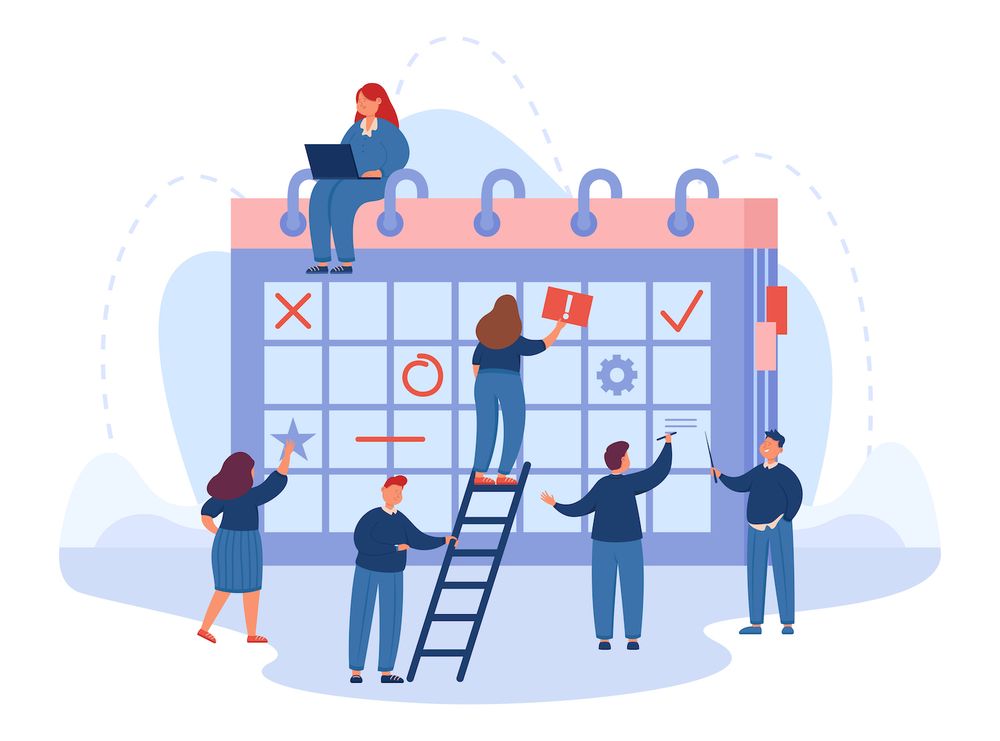Digital Creator: What Is It & How to Become One (2023 guide) |
In this piece this article, we'll explain the concept of digital creator. We'll define "digital creator," guide you through the pros and cons of becoming one, walk through different types of digital content, and lastly, explain the steps to becoming a digital creator. If you're considering becoming a digital creator, this guide is ideal for you!
((toc))
What is a digital creator?
The definition of digital creator of content
A digital creator is a creator who develops, creates, and shares original content in electronic mediums; common digital creation formats include video, writing, text, photography, and animation. Unlike people who make physical works digital creators enjoy greater flexibility with digital tools and have access to massive distribution networks online to reach the masses, build fan bases, and sell their digital products.
Online content is split between the content produced by creators who are independent as well as content produced by companies and brands. Although content creation can look similar between these two, there are often slightly different objectives:
- Creators of their own work often produce content for artistic expression, education, to grow followers, and make money from their work .
- Brands and organizations often employ digital creators to provide educational content for customers, create the member-led expansion businesses, and increase brand recognition.
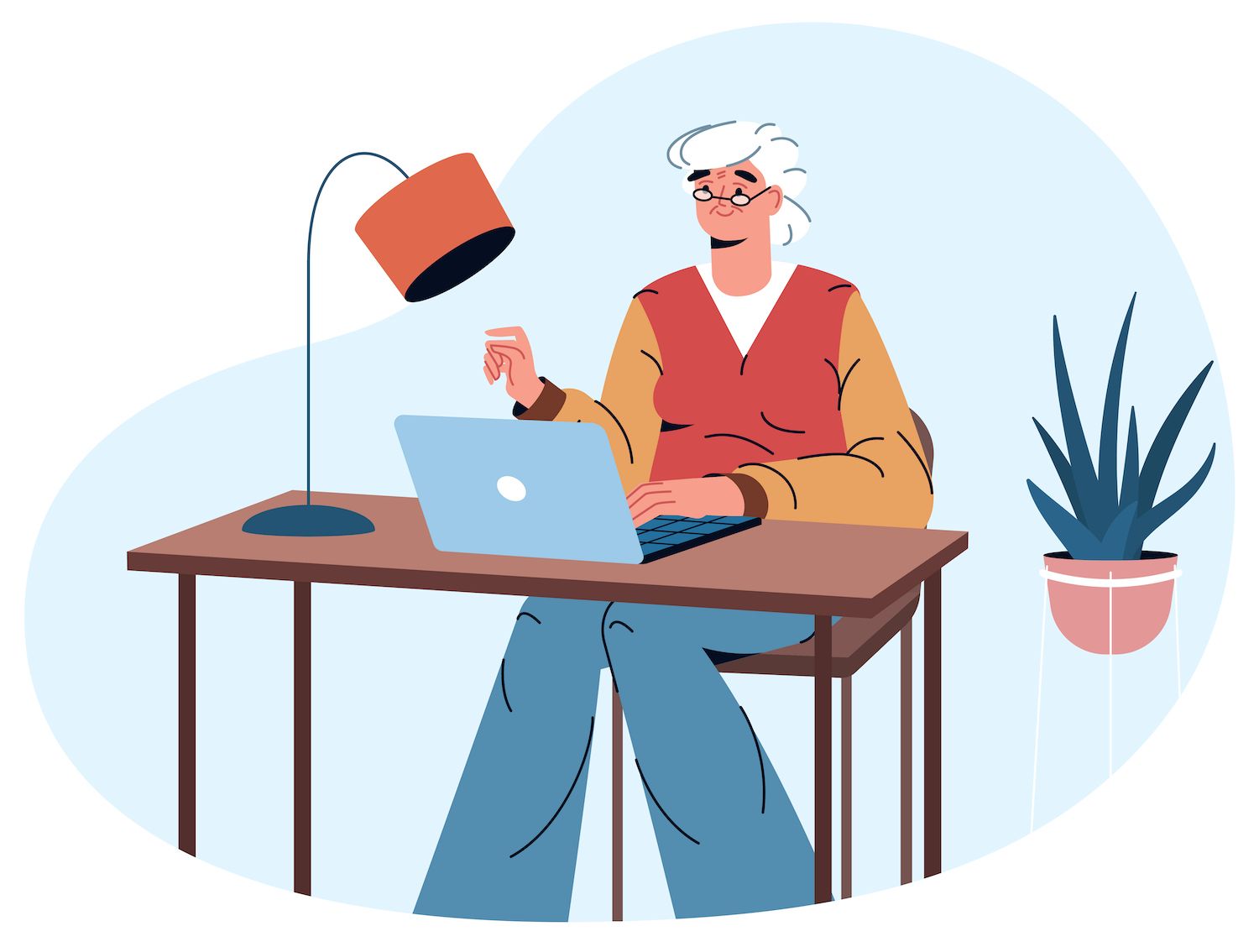
The increasing popularity of digital content
Digital creators form an integral component of our interactions with tech. The majority of our favourite apps like Instagram, YouTube, Facebook and LinkedIn could not exist without the contributions of digital creators. their pages.
Here are some amazing statistics to show that digital creators aren't going anywhere anytime soon:
- At least 300 million users on social media sites regularly share media in the form of digital content creators.
- 30% of those aged 18-24 consider themselves creators, while 40% of those aged 25-34 consider themselves content creators ( Hubspot ).
- 40 percent of Gen Z recommends value-based purchases more than friends or relatives (Hubspot).
- The value worldwide of influencer marketing is estimated at $21.1 billion dollars .
- 40% of digital creators earn less than $1000 in revenue per year ( Linktree ).
- 66% of digital creators consider their work as part-time (Linktree).
- Although AI can be disruptive to content creation, only 26% of people trust content created with AI (Hubspot).
These numbers are both encouraging as well as a bit depressing. With the number of digital content creators and so many content sources, it's an unfortunate fact that many creators aren't earning much. In this article, we'll discuss some of the highest-paying types of digital creation.
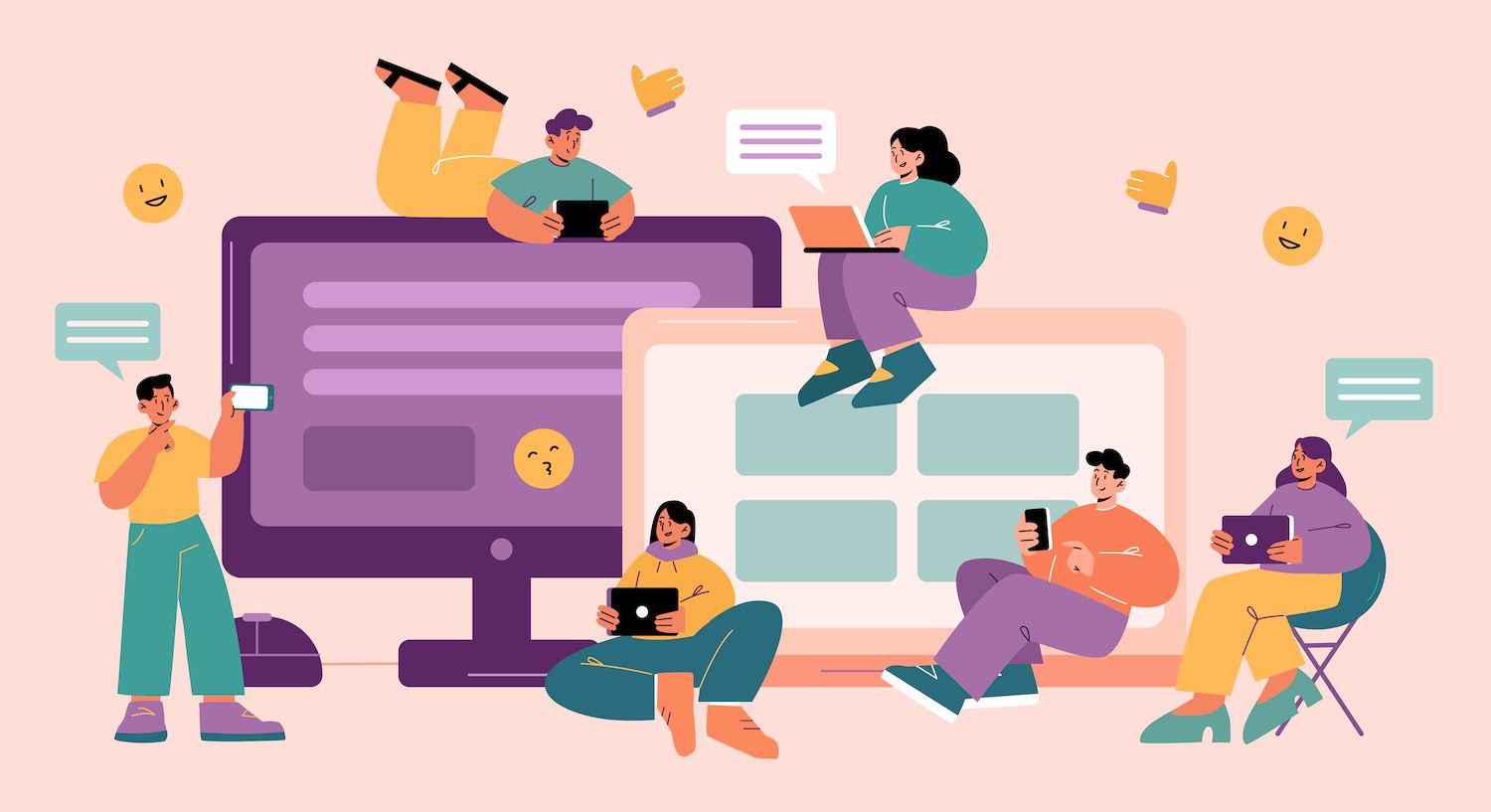
What can a digital Creator do?
Digital content creators don't always accomplish everything However, if we look at the skillset of the typical creator, it's not something to rub in the face of. Your parents may be unable to comprehend it (you post pictures online? Does that sound difficult? ) As an online creator isn't simple.
Digital creators often...
- Examine the digital content playing field and identify opportunities.
- Create digital content with analog and digital tools: design, create the content, create, and then edit.
- You must possess amazing technical and creative skills (e.g. editing videos, photography and writing), digital marketing, etc. ).
- Learn how to use email, social media and communities., to get their creations seen to the entire world.
- Navigate interpersonal relationships (with the members, followers as well as sponsors, brands, etc. ).
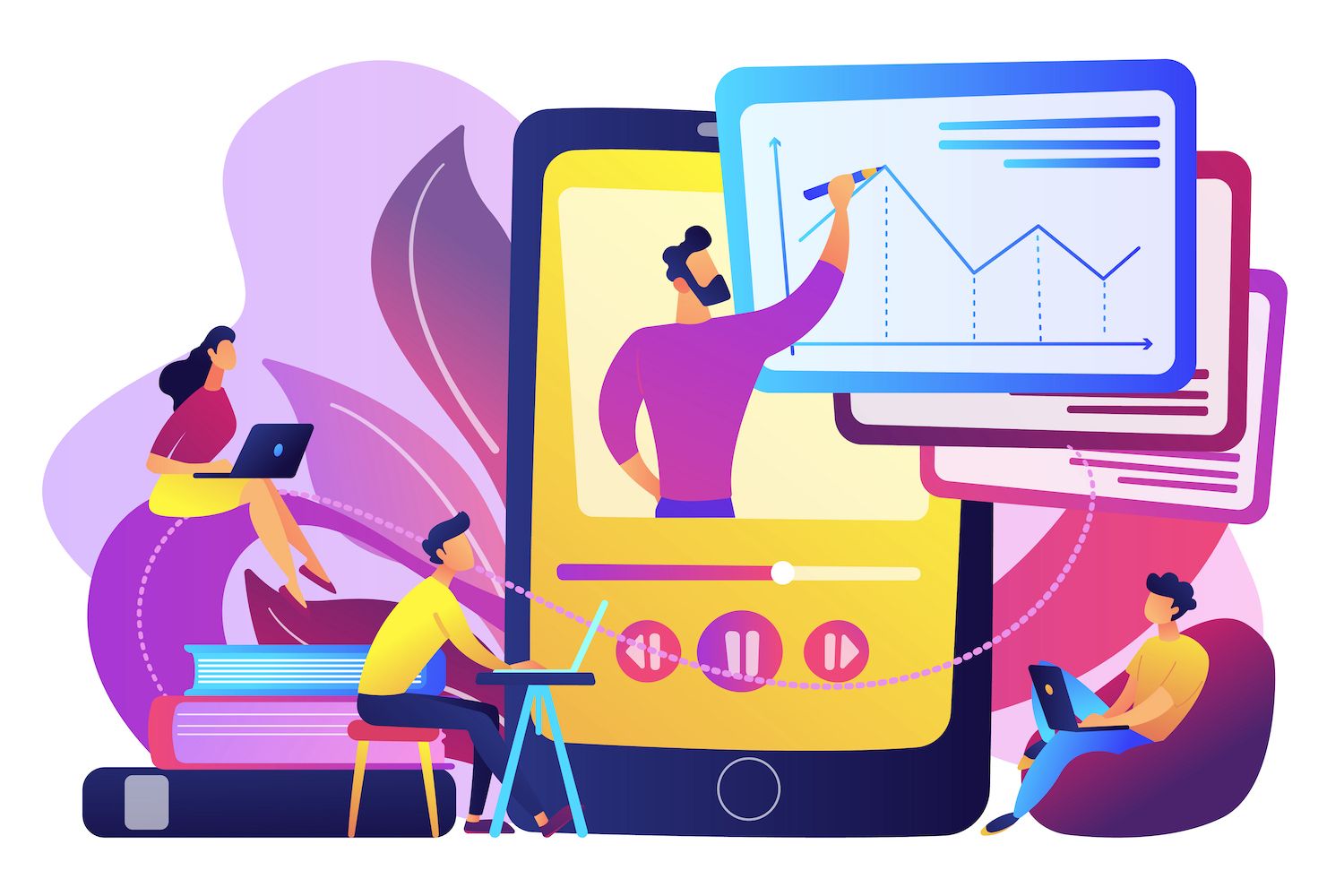
Why become an online creator?
Creative expression
If you believed it was the Italian Renaissance was the peak of human creativity It was not, there is nothing like this. Millions of independent creators can do the work that they love, getting it noticed by people without gatekeepers.
And thanks to the internet, there's a market that covers almost everything. No matter how niche. There is a market for you.
It's a great opportunity to become a digital creator. Since you are able to be yourself in any manner you like.
Flexible careers
A decade ago, making it as a writer meant getting published in a big publication. To become a photographer, you'd probably need an dark space, a lot of expensive equipment, and a gallery show. Painters would probably need exactly the same things.
However, today there is a wide range of jobs for digital artists. You can work as a freelancer and create a successful digital business, or pitch your talents to one of the thousands of corporations that require these skills, you've got potential for a career that is flexible.
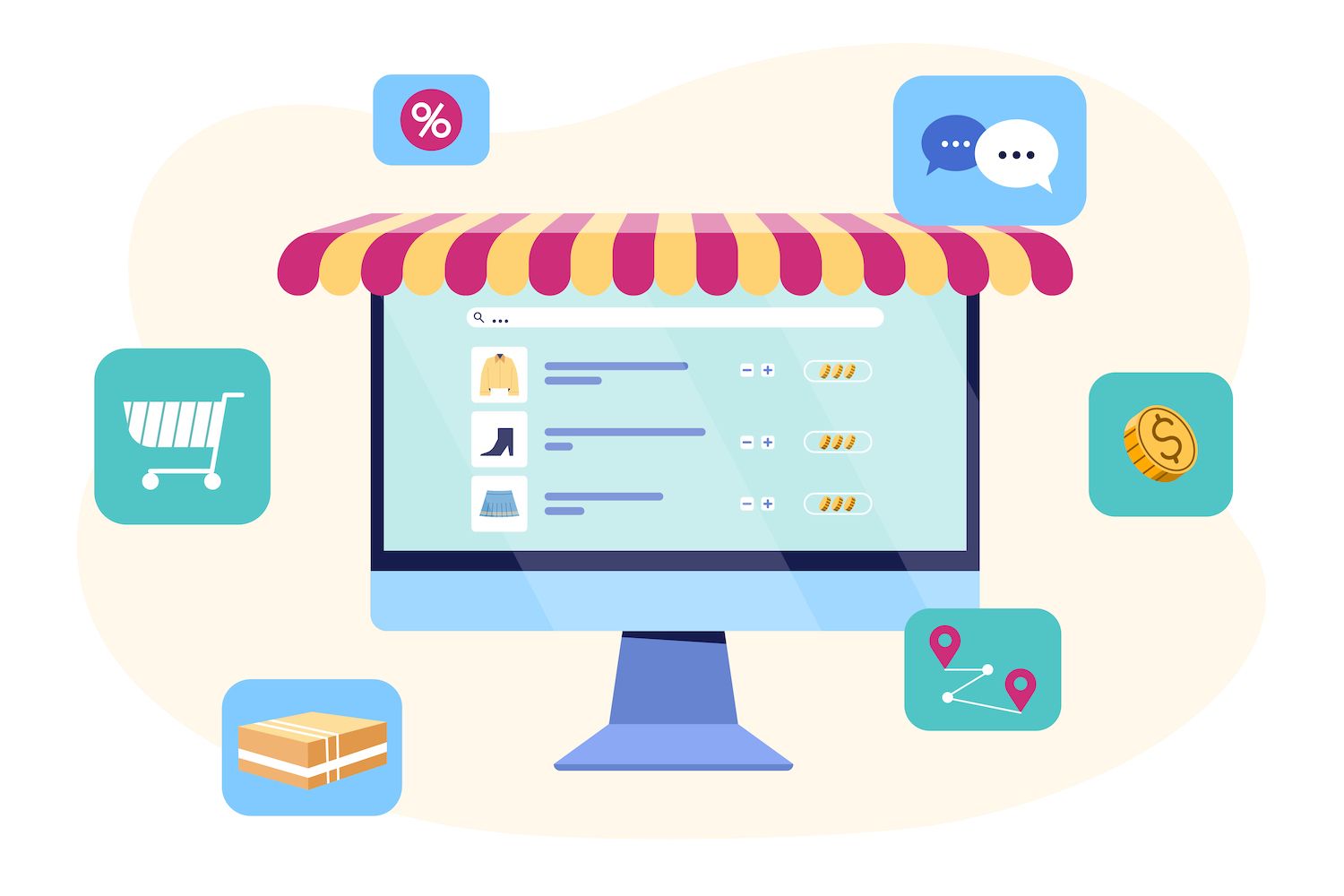
Location independent
Digital creators made up some of the early digital nomads who took benefit of the flexibility their job gave them to travel all over the world.
If you're making content to publish online, it usually does not matter where you reside. It means not only are there great job opportunities but also you often get location independence.
Blog posts can be written from Philadelphia, Paris, or Phuket. It's possible to capture Instagram pictures on any continent-your feed would probably be better for it.
Many digital creators only require a laptop and they can travel anywhere.
In demand
Digital content creators are sought after. Because of the huge amount of content available online, individuals who produce content that converts into likes, views, and subscribers are valued. You could directly earn money from your digital content and there are many methods to achieve this. However, it can also be being employed by a business who wants to publish digital content. The majority of businesses are producing content to make available online.
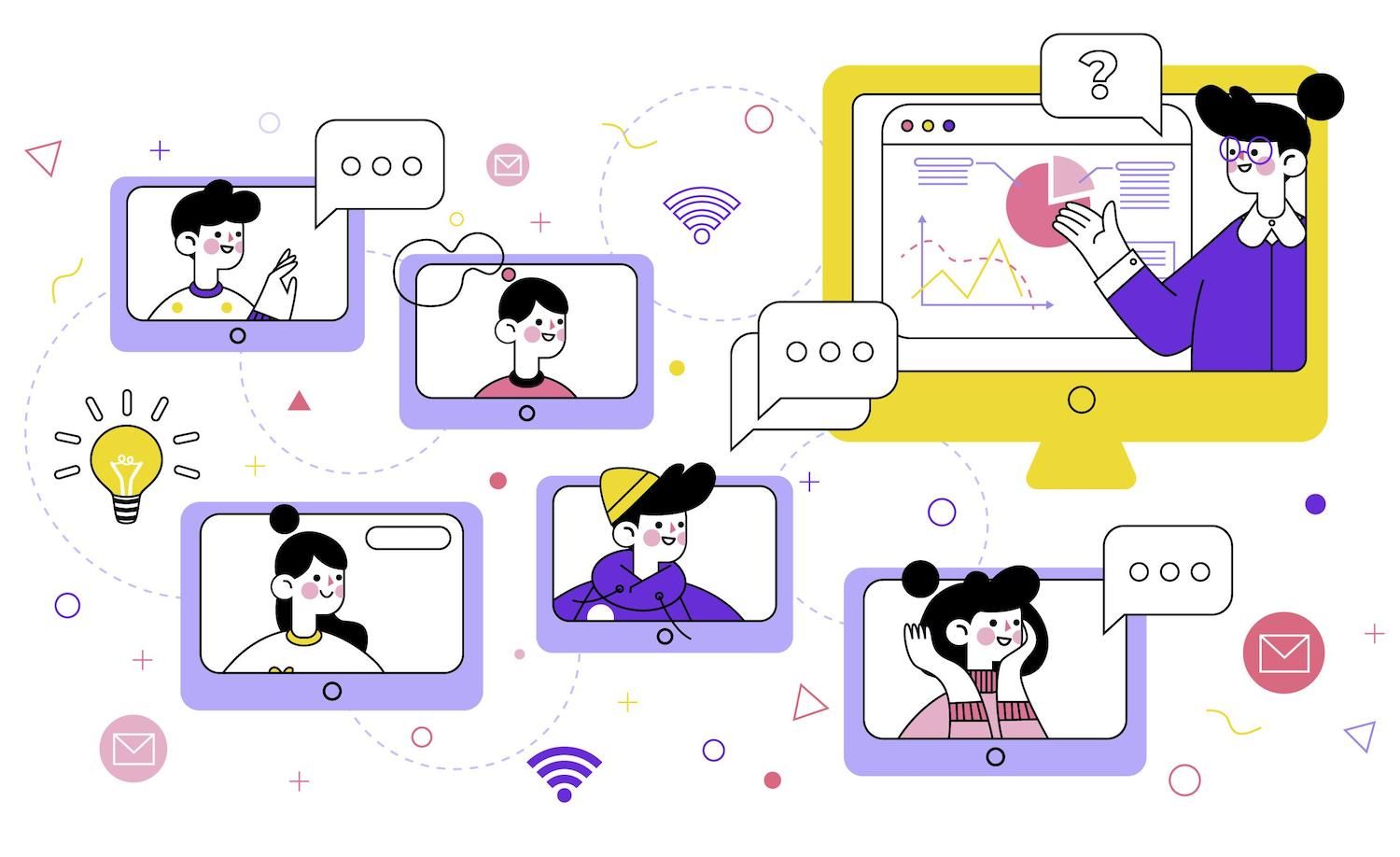
Different types of digital content
Here are a few examples of types of electronic content.
- Written: Blog posts, ebooks, social media, newsletters
- Multimedia includes: Images, vector images, memes, GIFs
- Video: Long-form video, shorts, livestreams, video templates, online courses
- Audio podcasts and music. Sound effects,
- Digital art: Paintings and graphic designs, logos NFTs, and paintings
- eCommerce: Product listing, knowledge base articles, reviews
- VR and Gaming Roblox games, virtual worlds, game apps, tests
How to become a digital creator
Find your niche
Content creation usually happens best in a niche. However, even creators who achieve mass appeal usually start out with a specific topic or target market.
Examples:
- PewDiePie (Felix Kjellberg): It began by focusing on video games and then expanded to cover other areas.
- Lilly Singh: The Canadian YouTuber began with skits about cultural identity and daily life and then branched out to acting for mainstream films and hosting a late night show.
- John Green: Started as "The Vlogbrothers" with Hank, his brother. They shared their thoughts on life and science But later John branched out to other activities, like a novel that was a top seller: The Fault in Our Stars.
- Issa Rae started the web-based series The Mis-Adventures of Awkward Black Girl. The popularity of the show led her to eventually create the HBO series "Insecure ."
Niching down allows creators to be focused on excelling at one thing and building followers around that single item.
Digital creators who have an eye on a business model for digital creation it is also helpful to know what niche you are in. It helps you be more successful than trying to appeal to everyone. If we observe people launching community-based courses or communities and communities, they are always better with a well-defined niche.
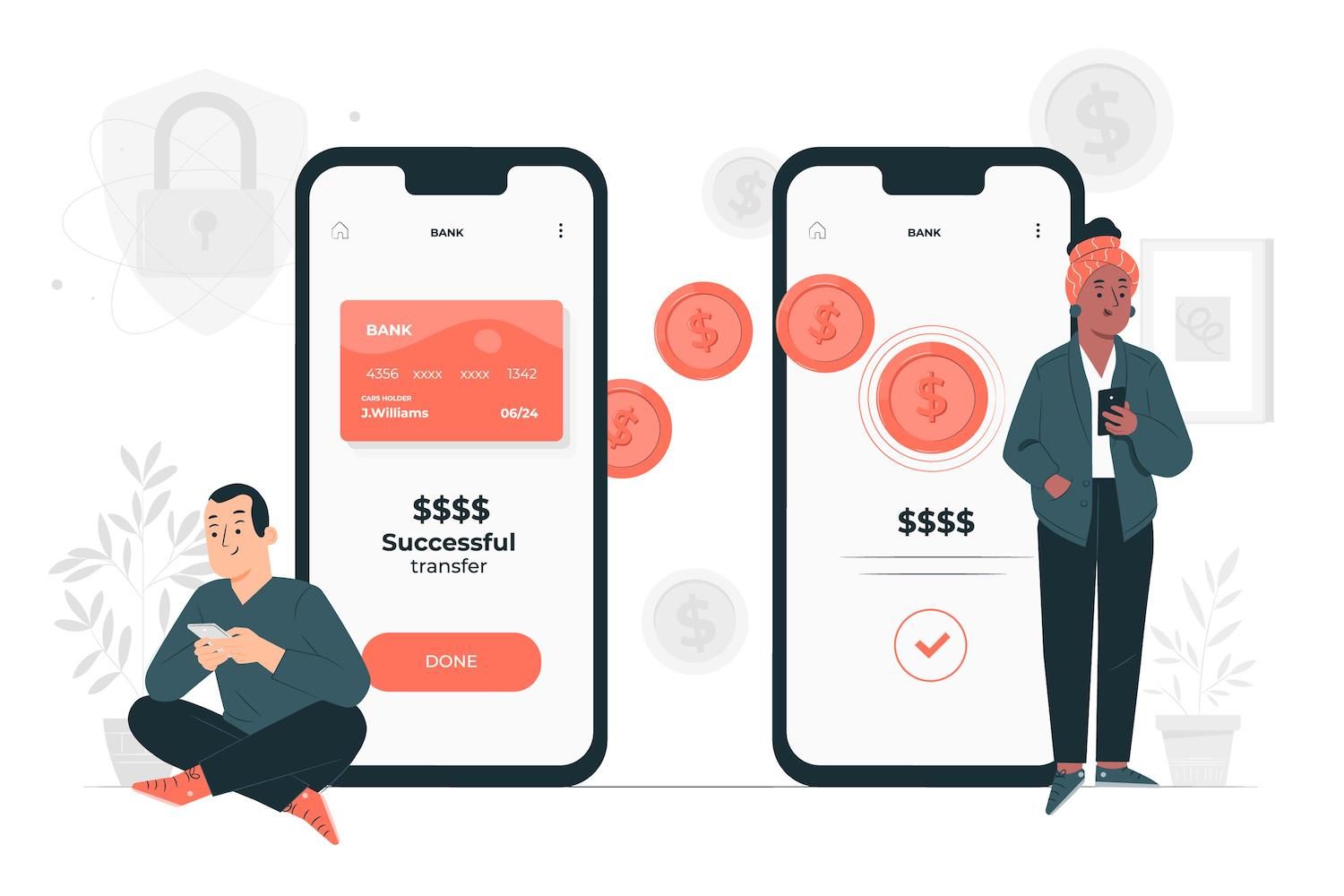
What is the best way to identify your niche
There's no ONE method to discover your own niche as a digital artist However, here are couple of tips to help you get started:
- Write down the topics which you would be able to discuss for hours. Or, ask yourself, what subject could you give an hour-long talk about with no preparation?
- You can ask your family and friends what they look to you for advice or insights about.
- Take a look at the creators that you already follow. We often follow people like us doing that stuff we value. Are you able to see a place for something you could build with those who are like you? (And don't let imposter syndrome get you down! It's always scary at first. )
Create your own style
Craft may not be the first word individuals think of when they think about creators of digital art. But, just like all excellent art, digital production is also a form of craft. The art requires expertise and excellence. And most creators have acquired a skill which helps their work stand out.
In the case of musician JVKE became a TikTok popularity during the swine flu pandemic. In each of his initial videos, he'd pretend that he was getting his mom to write a song for his mom. After that, he would create incredible song mashups that "his mom" had created. One of his very first songs was "Upside Down"--which included samples of the track Hood Baby, by KBFR.
The hit song went on to explode in popularity (With many commenters expressing outrage over the fact that JVKE got famous even though it was actually his gifted mother "creating it all.")
The thing is, JVKE was not a lucky guy. He was a remarkably skilled musician prior to his beginning. However, instead of simply release the music through TikTok, he created a fun hook format which always included his mother asking him to play songs (with footage of her making music). Through combining vocals, instrumentation along with music production fun footage, JVKE went viral and has since been creating Billboard songs like Golden Hour.
Whatever your content creation is, there's bound to have to be a certain amount of craft involved. Whether you're writing, making videos, performing, singing, or teaching people how to utilize Excel, honing your craft is what will get you to a content quality that's enough to make it into the news.
Today, you have the chance to build your art while sitting in a place. However, the most effective way to improve your skills is simply to start creating stuff. If you go back through the past archives of many YouTubers, you'll see how they've grown in production, presentation, as well as video ideas.
So you don't need to just wait until you're ready to become a professional. You can use content creation to learn and experiment while you go.
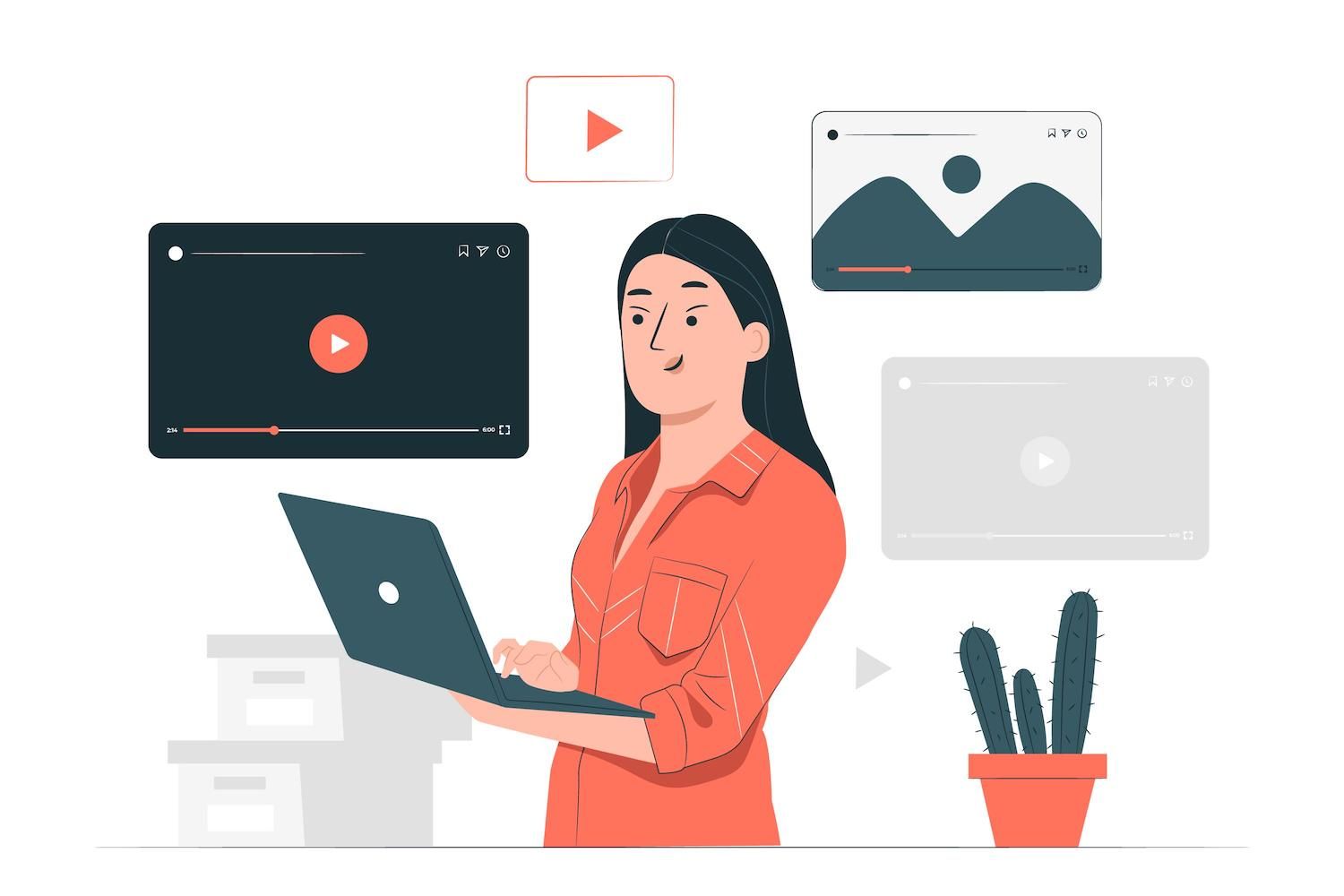
Master the necessary techniques
Each type of digital creator needs a particular type of knowledge.
If we witness people start thriving social networks, they often are leaders who can unite people and the capacity to design and share a vision that others catch. They possess the ability to make members feel like they are part of the community, and also their organizational abilities to set a course for the group to progress.
You don't have all the skills you need right now. Learning by doing is a legitimate way of acquiring them.
But whether through hands-on learning or through dedicated instruction, the vast majority of digital creators acquire some knowledge.
- Some might take classes: for example, copywriting classes to help you create writing that sells.
- Some might need to master the use of tools like cameras and microphone.
- Some might learn editing video, or keywords analysis for content on blogs.
There are different, important skills required by each kind of digital creator. mastering them can help you put your best stuff forward.

Select your preferred outlet
At some point, you'll choose an outlet for the creation of content. The listing of "types of digital content" provides examples of what kind of content to create, but each of them has a place.
- If you are a fan of hosting chats and interacting with your people, then a community is the right choice. The following examples of community websites can inspire you.
- If you love making and editing fun videos Maybe you're going to become the next YouTuber.
- If you have a great photography eye and are looking to create beautiful photos, maybe Instagram is for you.
- If you'd like to write about politics, giving analyses and perspectives on how things are going in the corridors of power, perhaps you're more suited for starting a blog (or perhaps writing op-eds for major publications).
- If you'd love to introduce a specific company's image onto social media and to create an environment for it, maybe you need to apply to be the social media manager.
Find the outlet which is compatible with your idea of creating.

Build a content strategy
It's not just an instant flash. Digital creators who post for a week and then cease posting will be experiencing... absolutely nothing. There is nothing to be expected.
It takes consistency, and you must stick in the same direction, no matter if you're creating a community of people, a subscriber to a mailing list, or having a presence on social.
and those who remain loyal to it are those who can observe the evolution of HTML0 as time passes.
If you're an independent digital artist or working as a part of an organisation, it's beneficial to develop an overall strategy for content! For example, when we create content for the Mighty blog, we usually set big-picture goals for content over the next quarter. Then, we'll do our search engine optimization research to determine the things we require from an SEO standpoint, then we outline the content we'll be creating using a Monday-based board.
This allows us to monitor what information we've got on the go and keeps us accountable for building it!
No matter what kind of content you're creating, a content strategy can be very beneficial. But do be realistic about your content strategy. Most new content creators aren't aware that it's not likely to be feasible to claim: "I'm going to create 10 YouTube videos per week." Plus it's more likely that you'll get discouraged with such high targets.
Instead of focusing on volume It is important to stick to a plan of content over a lengthy time period. A single video, article, etc. A week's worth of content can be a lot. It's the thing that most would-be creators fail to achieve.

Grow your community
"Community" can be a term which is used a time with digital content. It's true that we're biased here-as a community platform-but not every engagement on the internet is one of the communities. If you've had a Twitter troll adding snark under your posts, is it your community? If you've seen the same three people who like all of posts on Facebook, do you belong to this your community?
Heck no!
In any case, this is what passes for community on numerous internet forums.
What they are referring to when they talk about community
for many companies and creators, the term community is:
- Your posts are constantly being commented on by people who have been commenting your posts.
- People showing up to your livestreams.
- People joining your mailing list.
- Users asking questions on the YouTube comments.
- Respondents to a twitter poll.
The content isn't great, but a lot of creators are searching for this. Increased followers. More followers. A desire to see an image of a metric that is merely vanity but without the need to create a real human connection.

What we mean when we say community
When we think about community, we think about the real human connection. Not the surface comments and a chance to really build meaningful engagement with people.
If we are thinking of community, we can think of:
- Members who don't just consume your content, they make the content of their own.
- Members who answer others' questions by sharing their experiences.
- Friendships between members who are made with one another, without having to be present.
- members who take the time to be there day after day, to ensure that your community is a element of their identity.
True community isn't the one-way connections of subscribers or fans to creators. True community is about the connection of members and a sense of belonging.
And that's the thing we're trying to find.
If you're a digital artist, you might be looking to join the very first community. As you begin, it's exciting to get subscribers and comments. The buzz of dopamine from such things fade away. You say an untruthful thing, and your subscribers turn on you-because they never really knew who you were in the first place.
Building a community of engaged members allows you to do more with less. It's still possible to be the digital creator, however it's now hosting discussions instead of performing. The members you host find something better than an adrenaline rush; they discover a sense of belonging.
This is what communities are doing. This is why we love communities. And-as we talk about monetization-a community could become a flourishing digital business without millions and millions of fans. Indeed, we've seen 6- and 7- figure businesses grow out of a handful of engaged members.
Learn how to monetize
The majority of creators don't want to make money at some point. If this is the case, then you'll need to figure out a monetization strategy that works to your advantage and for your company. Obviously there are a lot of options for doing this, from marketing to selling digital goods.
You'll need to find the best solution that is suitable to promote your business.
Check out the creator calculator, that helps you estimate how much you 'll get from different monetization platforms.

Digital creator in contrast to. influencer
We're using the term digital content creator in this post What is the distinction between a digital content creator or influencer?
If you want to know a really simple way to think about the difference between a digital creator and an influencer it's as follows digital creator is a description of content created using digital technology, while influencer is the description of an individual's output. So, a digital creator is the person who makes digital media. An influencer is someone who's content gets a lot of followers and attention, building enough social capital that their opinions and creations could influence the thinking and actions of other people. Influencers are able to be paid for their work and many creators of digital content may not have yet monetized their work.
For keeping it simple, you could say that every influencer is a digital creator, but there are a few digital creators who can be an influencer, since the influencers' success is measured by their following.

Examples of successful digital creators
There are so many amazing examples of digital creators. we'll look at a few of our most loved digital creators who have built communities that are Mighty!
Adriene Mishler: Is the YouTube's most popular yoga instructor, and is behind the channel Yoga with Adriene (12 million viewers). Adriene along with her team run the Find What Feels Good and Kula communities on Mighty.
Martinus Evans: grew his Instagram community consisting of "back-of-the-pack athletes" to 95,000 people, and launched this into a community of 20,000+ users.
Ashley Fox: Left her six-figure Wall Street job to teach financial literacy to the majority of people big finance doesn't help. She launched a movement called Empify that made waves across the world and taught financial literacy in more than fifty schools and The Wealth Builders Community.
Sadie Robertson Huff is a well-known author, speaker and TV personality, as well as one of the most popular voices of young Christian women, today. With over 4.6 million Instagram followers as well as national speaking tours and a top-ranking podcast called, WHOA, That's Good. She manages the LO sister community. LO sister.
Drew Binsky: A travel YouTuber who has more than five billion views. Drew Binsky has launched a branded app-Just Go-to assist people in falling in love with travel.

Do you want to become the next digital creator?
In this article, it's easy to think too much about the idea of becoming a digital creator. The best method to do it is just to start.
If you're looking for an opportunity to build your own platform, come build with Mighty! We connect the best of community, content, course as well as commerce. Mighty is G2's top-rated community platform. It's an ideal platform to start your online content, and then build a business around it.
Try it free during 14 days! No credit card required.
